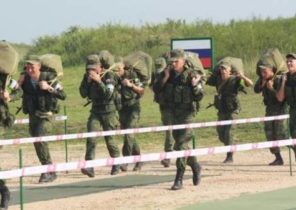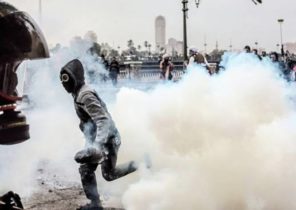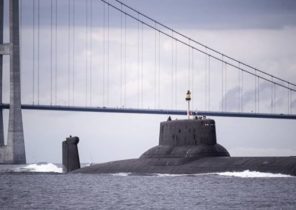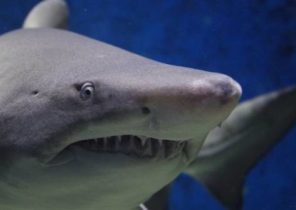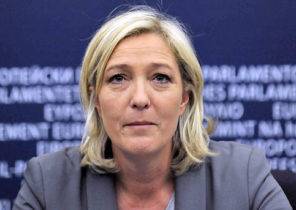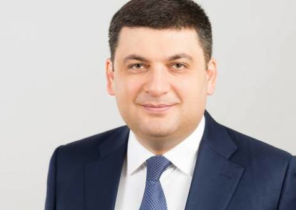Kremlin Fund for advanced research (Advanced Research Foundation) — Russia’s response to the Management of perspective research projects of the Ministry of defense (U.S. Defense Advanced Research Projects Agency) started to test the artificial intelligence systems that will allow the experimental ground combat center “Marker” to react accordingly on the same orders that commanders give real soldiers.
“Go! Stand! Fire! Back!”
Originally a combat robot on tracked chassis “Marker” was designed to respond to the commands that the operator issues using the tablet. “Then we began to experience the technology of voice control, when the commander gives orders as his subordinates, and the robot, — said in an interview with TASS Oleg Martyanov (Oleg Martyanov), the head of one of the centers of the Foundation for advanced studies.
After long delays, Russia finally accelerate work on the creation of most modern military ground and air robots. “Hunter B”, a stealth unmanned aircraft of the Russian air force, made its first test flight in August 2019. The Russian army in may 2018 was sent to Syria for testing in combat conditions, at least one ground-based armored fighting robot “U-9”.
However, “U-9” has not demonstrated the qualities expected by its designers. After just one month of his participation in combat operations, the Kremlin recognized that this unmanned ground isn’t ready for regular use on the front line.
“Modern Russian combat unmanned ground systems are not able to perform their tasks during military operations, of classical type, — said Andrey Anisimov, senior researcher, one research Institute, the conference, held in located in Saint Petersburg naval Academy named Kuznetsov.
“Unreliable” — that’s how analysts at British defence company BAE Systems has described this 12-ton, armed with gun and rockets unmanned ground complex.
In addition to his “inability to perform the assigned tasks in the course of military operations of the classical type” was noted and other shortcomings. For example, “thermal and electro-optical sensors located on the managed radio “Uran-9″, was unable to detect enemy targets at a distance of over 2 kilometers (1.25 miles),” — said the experts of the company BAE.
“The sensors, as well as managed their weapons systems were useless because the “U-9″ was moving because of the lack of necessary stabilization, said the experts of this UK company. After the command transmission has been a significant delay.” In addition, “U-9” was “vulnerable” in relation to interference, and this can lead to “loss of communication and control”.
“U-9” has only a “limited Autonomous capabilities”, noted specialists of the company BAE. This 12-ton unmanned ground complex, has limited capabilities for the detection, identification and destruction of enemy targets if it acts without human intervention”.
Work of experts of the Foundation for advanced studies on the “Marker” can help to increase the reliability and autonomy of such front-line of unmanned ground-based systems as “U-9”. Complex “Marker”, comparable in size with the tank, apparently, got the chassis from existing reliable vehicles, so it may be easier and more durable than smaller and made on an individual scheme “U-9”.
The immediate objective for the robots is not to replace soldiers in the Russian ground forces, but to complement them. Unmanned ground systems (UGV) at the moment should be assistants when performing different functions — military operations, intelligence, logistics, evacuation and other tasks,” said Samuel Bendett (Samuel Bendett), an analyst from the Center for naval analysis (Center for Naval Analyses) and the Center for a new American security (Center for a New American Security).
Experiments Foundation for advanced studies in the transmission of voice commands from the human to the robot does not fully indicate the state of Russian robotics. Perhaps the Kremlin wants to combat robots that would be sufficiently Autonomous and would require only minor control on the part of man. Test “Marker” “in no way can not serve as the final criterion on which level are currently fighting the Russian Autonomous complexes”, — said Bendett.
